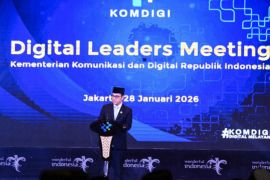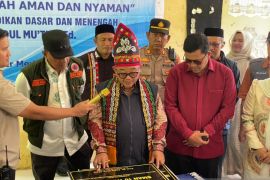"There are two reasons for the IPW to reject the implementation of the defamation articles. The first is that the articles have been scrapped by the Constitutional Court (MK)," IPW Presidium Chairman Neta S. Pane said here on Sunday.
The second reason, he said, is that if the articles are implemented, it will discriminate citizens. Before the law, all citizens, including the President are equal.
"The position of all citizens are equal before the law so that it is not appropriate to give a legal privilege to the president. Giving a legal privilege to the president is equal to discriminating citizens and the law itself," Pane said.
He said there had been articles on defamation and insult in the Criminal Code. So, there is no need to implement a defamation article on President.
"If the President feels he or she is insulted, he or she can use the existing defamation articles that have been stipulated in the KUHP. This has been used by Judge Sarpin who sued Judicial Commission (KY) judges on charges of insult and defamation," Pane added.
The government is seeking to re-introduce criminal charges for insulting the president in the draft of a Criminal Code (KUHP) amendment, a provision that had been annulled by the Constitutional Court.
The Constitutional Court scrapped three articles on insulting the president from the KUHP in 2006, but a person can still be charged for defamation if someone files a report against that person, as stipulated in articles 310 and 311.
Article 263 paragraph 1 of the draft bill says that a person might face a maximum of five years imprisonment for insulting the president or the vice president.
In addition, the article also stipulates that a criminal charge is not applicable for criticism or self-defense.
The proposed article 264 stipulates that a person who distributes or displays writing or imagery defaming the president in public may also face a five-year term of imprisonment.
In the 2006 ruling, the Constitutional Court almost unanimously ruled that the three articles in the KUHP - articles 134, 136 and 137 - undermined the right to freedom of speech mandated by the Constitution and caused uncertainty, as those articles were subject to multiple interpretations.(*)
Editor: Heru Purwanto
Copyright © ANTARA 2015










